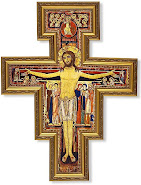Why Wash in the Jordan?

John was a prophet, and prophets were known for performing symbolic actions with rich, prophetic meanings. For example, the prophet Jeremiah smashed a pot to symbolize the destruction of the Temple, Hosea took a prostitute as a wife to signify how Israel was an unfaithful bride to Yahweh, and Ezekiel shaved with a sword, not for a closer shave, but to signify the impending invasion of Jerusalem.
Prophets performed provocative acts that were aimed at making a mark in the memory and bringing about a change of heart in their audience. John’s directing the people of Jerusalem and Judah into the Jordan was an action filled with meaning.
The Jordan was a religious and national symbol for the Jews. At the climax of the first Exodus, when Israel escaped from Egypt, Joshua led Israel through the Jordan and into the Promised Land. Crossing the Jordan long ago marked Israel’s release from Egyptian captivity at the beginning of Israel’s possession of the Promised Land. Now John was calling Israel to come back to the Jordan and reenter into the Promised Land. Like their ancestors before them, Israel was to go out to the wilderness and then reenter into the Promised Land. John was offering Israel a fresh start, a new beginning. Isaiah had foretold that the wilderness would be the place of origin for Israel's new exodus. The crowds grew in anticipation and excitement, for it looked like John was beginning the new exodus, the fulfillment of the prophetic promises made by Isaiah – this time not from Pharoah, or even Caesar, but from Satan.
Many wondered whether John might be the Messiah, the one to lead Israel through a new exodus and redemption. John, however, was not the next Joshua. He made it clear that he was simply preparing the way, saying, . .
"I baptize you with water, but he who is mightier than I is coming, the thong of
whose sandals I am not worthy to untie; he will baptize you with the Holy Spirit
and with fire (Lk 3:16)."
[1] Luke 3:16
[2] Tim Gray, Author of Mission of the Messiah. Pgs. 21-22









No comments:
Post a Comment